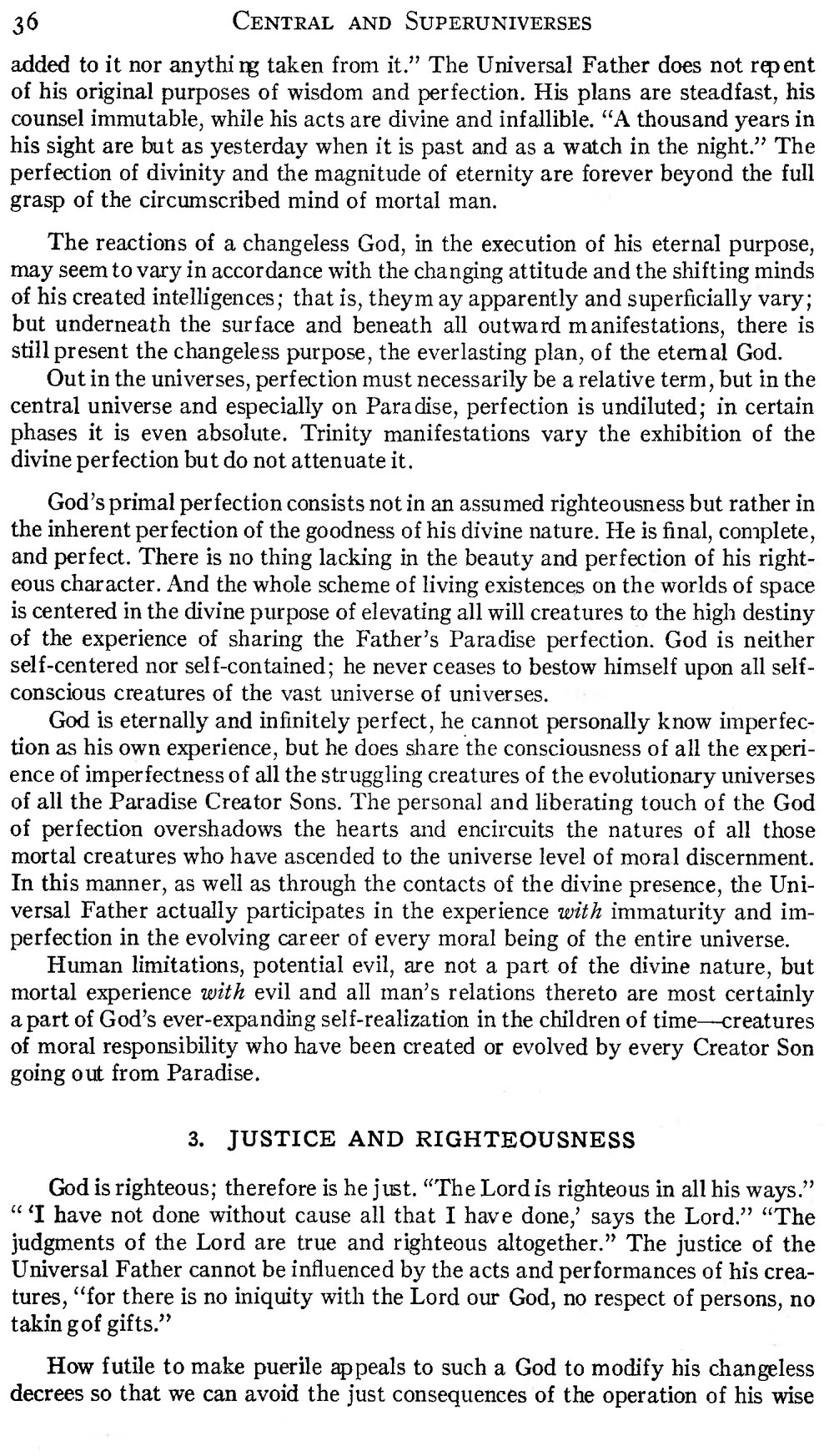added to it nor anything taken from it." The Universal Father does not repent of his original purposes of wisdom and perfection. His plans are steadfast, his counsel immutable, while his acts are divine and infallible. "A thousand years in his sight are but as yesterday when it is past and as a watch in the night." The perfection of divinity and the magnitude of eternity are forever beyond the full grasp of the circumscribed mind of mortal man.
The reactions of a changeless God, in the execution of his eternal purpose, may seem to vary in accordance with the changing attitude and the shifting minds of his created intelligences; that is, they may apparently and superficially vary; but underneath the surface and beneath all outward manifestations, there is still present the changeless purpose, the everlasting plan, of the eternal God.
Out in the universes, perfection must necessarily be a relative term, but in the central universe and especially on Paradise, perfection is undiluted; in certain phases it is even absolute. Trinity manifestations vary the exhibition of the divine perfection but do not attenuate it.
God's primal perfection consists not in an assumed righteousness but rather in the inherent perfection of the goodness of his divine nature. He is final, complete, and perfect. There is no thing lacking in the beauty and perfection of his righteous character. And the whole scheme of living existences on the worlds of space is centered in the divine purpose of elevating all will creatures to the high destiny of the experience of sharing the Father's Paradise perfection. God is neither self-centered nor self-contained; he never ceases to bestow himself upon all self-conscious creatures of the vast universe of universes.
God is eternally and infinitely perfect, he cannot personally know imperfection as his own experience, but he does share the consciousness of all the experience of imperfectness of all the struggling creatures of the evolutionary universes of all the Paradise Creator Sons. The personal and liberating touch of the God of perfection overshadows the hearts and encircuits the natures of all those mortal creatures who have ascended to the universe level of moral discernment. In this manner, as well as through the contacts of the divine presence, the Universal Father actually participates in the experience with immaturity and imperfection in the evolving career of every moral being of the entire universe.
Human limitations, potential evil, are not a part of the divine nature, but mortal experience with evil and all man's relations thereto are most certainly a part of God's ever-expanding self-realization in the children of time—creatures of moral responsibility who have been created or evolved by every Creator Son going out from Paradise.
God is righteous; therefore is he just. "The Lord is righteous in all his ways." "'I have not done without cause all that I have done,' says the Lord." "The judgments of the Lord are true and righteous altogether." The justice of the Universal Father cannot be influenced by the acts and performances of his creatures, "for there is no iniquity with the Lord our God, no respect of persons, no taking of gifts."
How futile to make puerile appeals to such a God to modify his changeless decrees so that we can avoid the just consequences of the operation of his wise

